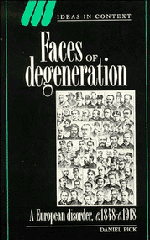1 - Contexts
Published online by Cambridge University Press: 03 May 2011
Summary
INTRODUCTION
Pécuchet takes a gloomy view of the future of mankind.
Modern man had been diminished and has become a machine.
Final anarchy of the human race (Buchner, i, ii).
Impossibility of peace (id).
Barbarity caused by excessive individualism and ravings of science.
Three hypotheses: 1. Pantheistic radicalism will break every link with the past, and inhuman despotism will result; 2. if theistic absolutism triumphs, the liberalism which has pervaded mankind since the Reformation will collapse, everything is overturned; 3. if the convulsions existing since the Revolution of 1789 continue endlessly between two outcomes, these oscillations will carry us away with their own strength. There will be no more ideal, religion, morality.
America will have conquered the world.
Future of literature.
Universal vulgarity. There will be nothing left but a vast working-class spree.
End of the world because heat runs out.
Bouvard takes rosy view of future of mankind. Modern man is progressing.
Europe will be regenerated by Asia. The law of history being that civilization goes from East to West – role of China – two branches of mankind will finally be merged.
Future inventions; means of travel. Balloon. Submarine boat with windows; always in calm waters, as the sea is only disturbed on the surface – It will be possible to see fish go by and landscapes at the bottom of the ocean. – Animals tamed – All kinds of cultivation. Future of literature (other side of industrial literature).
- Type
- Chapter
- Information
- Faces of DegenerationA European Disorder, c.1848–1918, pp. 1 - 34Publisher: Cambridge University PressPrint publication year: 1989
- 1
- Cited by

